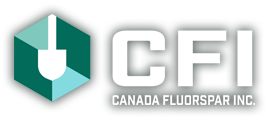
Factoring invoices only works when your customers pay their invoices on time and in full. Ensure you’re certain your customers will pay before contacting a factoring company. Recourse factoring means your company is liable if your customers default on their invoices. In non-recourse factoring, you don’t have to pay if your customers default due to specific reasons such https://www.bookstime.com/articles/completed-contract-method as bankruptcy.

Customer Service
With accounts receivable financing, the invoices serve as collateral, making it an attractive form of borrowing for businesses without strong credit histories. To qualify, you simply need to have outstanding invoices from reliable customers. The factoring company will look at the credit history of your customers as opposed to your business. Running a business in today’s fast-paced world means managing cash flow is more critical than ever. For many businesses, particularly those in the United States, accounts receivable factoring company has become a go-to solution for improving cash flow without taking on debt.

Will I qualify for accounts receivable factoring?
- This can make things simpler for you, the client, since you won’t need to worry about collections, but it increases the risk for the factor, and so increases the factoring fee.
- After that review is satisfactorily completed, the factoring company will offer an agreement that should be carefully reviewed.
- So if you aren’t comfortable with a factoring company coming in between you and your customer, Fundbox might be the right option for you.
- But while you’ll get cash quickly, this type of funding can be expensive, since a factoring company takes a big bite.
- Credit cards and lines of credit are another way to deal with bridging the purchase-payment gap.
- Small business owners receive funds based on the values of their unpaid invoices and after they’re paid, those owners then pay the lenders back plus any fees.
The factoring company takes on more risk with nonrecourse factoring, so rates tend to be higher — and advance rates may be lower. Factoring receivables helps businesses get funding by selling unpaid invoices to a factoring company — in exchange, the business receives how does factoring receivables work a cash advance on a portion of the invoiced amount. But while you’ll get cash quickly, this type of funding can be expensive, since a factoring company takes a big bite.
- Manufacturers often face long payment terms from retailers and distributors, creating cash flow challenges.
- While accounts receivable ultimately become future cash flows, the amount of time it takes could result in lowered profitability.
- This process allows businesses to obtain immediate cash flow instead of waiting for the payment terms of 30, 60, or 90 days to collect the money owed by their customers.
- Debt capital includes typical liabilities of a company, such as loans, bonds, and provisions, as well as unique forms like deferred income.
What Is Same Day Invoice Financing?
- Factoring can be used by even the smallest of businesses to expand operations.
- This alternative financing method focuses on client creditworthiness rather than business owner’s and doesn’t…
- It involves submitting unpaid invoices to a factoring company, which provides a cash advance based on the invoice value.
- A/R factoring exposure generally only lasts as long as the vendor’s payment terms with its buyer (usually days).
- In return for paying the company cash for its accounts receivables, the factor earns a fee.
You’ll sell the invoices to your factoring company, which offers an 80% advance rate with a 3% factoring fee. Accounts receivable factoring is a way of financing your business by selling unpaid invoices for cash advances. Though it can be expensive, this method can also make sense to bridge cash-flow gaps. And because receivables factoring isn’t technically a small-business loan, it can be a good option for business owners with uneven or short credit histories who may not qualify with a traditional lender. The discount rate is the fee a factoring company charges to provide the factoring service.
Because traditional loans do make those a part of the process, a business with less ideal creditworthiness might desire to avoid assets = liabilities + equity a credit impact, or be unable to put down collateral to maintain cash flow. Once a selling organization submits its invoices, the factor will verify details and ensure the invoices qualify (more on that in a moment). In most transactions, the factoring company advances 80 – 95% of the factored amount the day the invoice is submitted. That’s why effectively managing your accounts receivable (AR) is important. Take advantage of our highly experienced team, state-of-the-art technology, and global footprint to promote the growth of your business.


